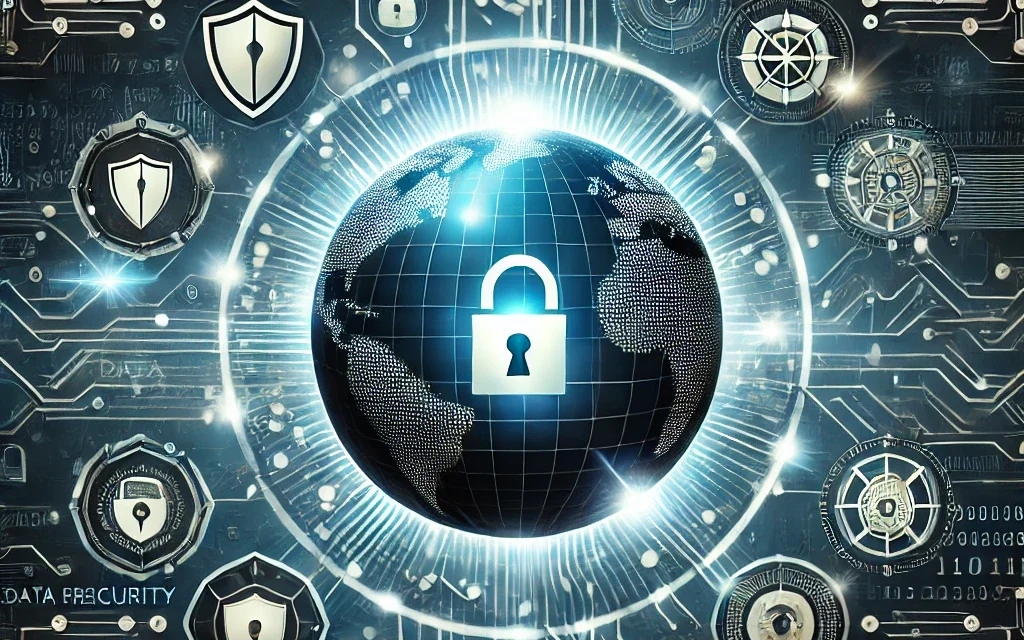In today’s world, digital transformation is at the heart of how we live, work, and interact. From e-commerce and remote work solutions to social media and smart home devices, digital technologies are woven into the fabric of our daily lives. Yet, as digital connectivity grows, so do the risks. Cybersecurity has evolved from a niche industry topic to a global necessity that touches every individual and organization. In this post, we’ll explore why Cybersecurity in an Increasingly Digital World and how everyone, from businesses to individuals, can protect themselves.
Understanding the Rise in Cybersecurity in an Increasingly Digital World
The rapid growth of the digital landscape has led to an explosion in cyber threats. Cybercriminals are leveraging advanced tactics and technologies to infiltrate networks, steal data, and hold systems hostage. According to recent reports, data breaches and cyber attacks have skyrocketed, causing significant financial and reputational damage to organizations of all sizes. In fact, the average cost of a data breach in 2023 was estimated at $4.45 million, with larger companies facing even greater expenses.
Key Factors Driving Cybersecurity Concerns
- Data Proliferation
As businesses and individuals store more personal, financial, and sensitive data online, the potential for cyber threats has increased exponentially. This surge in data has made companies prime targets for attacks, making cybersecurity a necessity rather than a luxury. - Remote Work and Hybrid Work Models
The pandemic catalyzed a shift toward remote work, and many companies have retained hybrid work models. Remote access, while convenient, opens doors for potential vulnerabilities, with employees logging in from various locations and networks, many of which lack strong security measures. - Advances in Cyber Attack Techniques
Hackers and cybercriminals are constantly evolving their methods. Today’s cyber attacks are more sophisticated than ever, with tactics like ransomware, phishing, and malware becoming increasingly difficult to detect and prevent. Additionally, the rise of artificial intelligence (AI) has equipped cybercriminals with new tools to automate and scale attacks. - Internet of Things (IoT) Expansion
The IoT market is booming, connecting everything from smart refrigerators to security cameras. Each connected device is a potential entry point for hackers, and because many IoT devices lack robust security protocols, they are often easy targets.
The Real-World Impact of Cybersecurity Breaches
The consequences of cybersecurity breaches are extensive, often impacting victims financially, operationally, and emotionally. Here’s how a cybersecurity breach can disrupt individuals and businesses:
- Financial Losses: Cyber attacks can lead to direct financial losses due to fraud or ransom payments, as well as indirect losses from operational downtime.
- Reputational Damage: Businesses that suffer data breaches can lose the trust of their customers, which may lead to lost business and long-term reputational damage.
- Regulatory Consequences: As data protection regulations tighten globally, companies found negligent in cybersecurity practices may face hefty fines and legal ramifications.
Essential Cybersecurity in an Increasingly Digital World
For individuals and businesses, the following cybersecurity measures are essential to protect data and maintain digital security:
- Implement Strong Password Policies
Encourage the use of strong, unique passwords for each account and implement multi-factor authentication (MFA) to add an extra layer of security. - Regularly Update Software and Systems
Cybercriminals often exploit outdated software and systems with known vulnerabilities. Regular updates ensure that you have the latest security patches to protect against threats. - Invest in Network Security
For businesses, this includes firewalls, intrusion detection systems, and encryption protocols. For individuals, secure home networks and be cautious when using public Wi-Fi. - Educate Employees and Users
Many breaches result from human error. Cybersecurity training on how to identify phishing scams, suspicious links, and risky downloads is vital for minimizing risk. - Conduct Regular Security Audits
Routine audits help identify vulnerabilities before attackers do. Companies should perform these assessments and address any security gaps promptly.
The Future of Cybersecurity
As technology advances, so too will the techniques and tools used by cybercriminals. The future of cybersecurity will likely involve more sophisticated AI-powered security solutions, increased regulatory requirements, and a greater emphasis on personal responsibility in digital spaces. Businesses and individuals alike will need to adapt and adopt proactive security measures to stay ahead of evolving threats.
Conclusion About Cybersecurity in an Increasingly Digital World
In a world where digital technology is both a boon and a potential liability, prioritizing cybersecurity is essential. Cybersecurity affects everyone, from individuals managing personal information to businesses safeguarding customer data. By staying informed and vigilant, adopting best practices, and investing in robust cybersecurity measures, we can work together to secure our digital future. know more about trending news? Click here
FAQs about Cybersecurity in an Increasingly Digital World
1. Why is cybersecurity important in today’s digital world?
Cybersecurity is crucial because it protects sensitive data and prevents unauthorized access to systems, networks, and devices. With the rise of digital transformation, more personal and business data is online, making it essential to protect against cyber threats.
2. What are the common types of cyber threats today?
Common cyber threats include phishing attacks, ransomware, malware, and distributed denial-of-service (DDoS) attacks. These attacks can cause financial losses, data breaches, and reputational damage.
3. How does remote work affect cybersecurity?
Remote work increases the risk of cyber attacks as employees connect from various locations, often using less secure networks. This can expose company data to vulnerabilities and require businesses to enforce stronger cybersecurity policies and practices.
4. What is the Internet of Things (IoT), and why does it matter in cybersecurity?
The IoT refers to connected devices that communicate via the internet, like smart home systems and wearable tech. Each connected device is a potential entry point for hackers, making IoT security a vital aspect of cybersecurity today.
5. How can I protect my personal information online?
Use strong, unique passwords for each account, enable multi-factor authentication, avoid clicking on suspicious links, and regularly update software to ensure your devices have the latest security patches.






